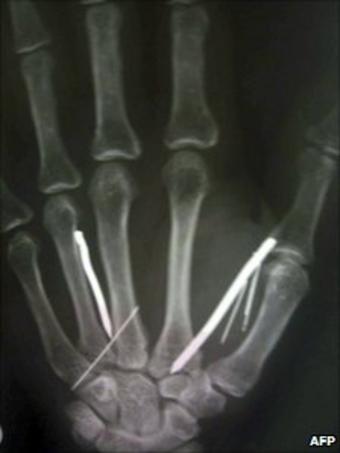Oh gawd there’s so much silliness in this NY Times think piece on How Do We Count the Trans Children?
How many students needing inclusive restrooms are we talking about? the Times asks plaintively.
No one knows for sure. Researchers have not figured out how to obtain consistent, reliable answers from teenagers, much less younger children.
Ah now why might that be, do you think? Could it be because the concept is ridiculously fuzzy, and constantly expanding and shifting, bulging here and collapsing inward there? Could it be because people aren’t even talking about the same thing half the time? (Half?! What am I saying? How about 99% of the time?) Could it be because the whole idea is quite new but nevertheless fenced around with unbelievably harsh taboos and punishments and ostracisms?
The best estimate, Jan Hoffman says, is that it’s under 1% of the population.
There are no national surveys.
Pediatricians generally do not ask patients about their gender identity, and if they do, they do not usually report findings in national health registries.
Again – why would they? When “gender identity” is such a tendentious and hotly politicized concept, why would pediatricians ask patients about theirs? If you think “gender identity” is more akin to souls and auras than it is to the kidney or the lungs, you don’t see a whole lot of point in putting it on medical questionnaires.
In 2006, the Boston Youth Survey asked 1,032 public high school students, “Are you transgender?” The responses were 1.6 percent yes, 86.3 percent no, and 6.3 percent “don’t know.” An additional 5.7 percent skipped the question.
Some believe that these estimates are low, “because trans identity has become more salient and acceptance has increased,” said Jody L. Herman, a scholar of public policy at the U.C.L.A. School of Law’s Williams Institute. “But we don’t have any way of knowing that.”
You could put it that way, or you could put it another way. Yes in a sense trans identity has become more “salient” – in the sense that a lot of people won’t shut up about it. But in other senses it hasn’t become more salient so much as it’s become more trendy. How do experts tell the difference? What even are “experts” on this subject, and how do we know?
Interestingly, in surveys, a higher proportion of teenagers than adults tend to identify themselves as transgender.
Of course they fucking do. See above – it’s trendy. Also, teenagers are teenagers, and they don’t know everything yet, and they’ve been told a lot of horseshit about what it means to “identify oneself as transgender” – so naturally more of them are buying into the dogma than adults are. Of course it could be that they’ve seen a new truth or possibility that the more habituated adults can’t see because of the habituation…but it could also just be that they’re believing what they’re told about a new and evolving concept while the more habituated adults are more skeptical.
Children are even more of a black box, surprise surprise. (Of course they are – they’re children.)
Almost no research has been done on child gender identity. One challenge is that much of the information would have to come from parents. Dr. Conron, who has worked with parents of lesbian, gay, bisexual and transgender youths, said, “Parents often do not know that a child’s gender identity is different from their assigned sex at birth until their child, or another person, often in adolescence, tells them so.”
That expresses it as if there’s a definite fact of the matter, that a child has a gender identity that is different from their assigned sex at birth, and that that fact is knowable, but perhaps not until adolescence. But what if there is no such definite fact of the matter, and we’re just talking about fuzzy variable elusive indefinite feelings as opposed to facts? What if that’s the case and it’s actually not all that helpful to reify “gender identity” as if it were something you can have the way you can have Tay-Sachs disease or sickle-cell anemia? What if it would actually be better to talk about this as a matter of feelings rather than a Thing? What if that would reduce all the anxiety there is around this subject?
Some developmental psychologists say that children as young as 2 or 3 can express a gender identity that is at odds with the one defined by their genitalia.
Bullshit. What that always boils down to, when people describe it, is children wanting to wear skirts or play with dolls, liking blue and hating pink, being noisy and physical or quiet and cuddly. In short, it boils down to the most fatuous stereotypes. Not fitting a small and stupid collection of stereotypes is not necessarily a matter of “identifying” as the other sex, for the simple reason that the stereotypes are stupid. A girl “as young as 2 or 3” who likes to wear shorts and get muddy is not expressing a gender identity that is at odds with the one defined by her genitalia, she is just being a kid, with the normal range of variations in taste and behavior and personality. There is no need to label that as a “gender identity.”
Younger children whose behavior and preferences may not be solidly masculine or feminine are increasingly called “gender-creative” or “gender-fluid” by educators, psychologists and parents.
There is no “solidly masculine or feminine” – there is only stereotyping. Where have all these people been for the last 50 years? We talked about this, I know we did!
Pour the Kool-Aid down the drain, and then run.









